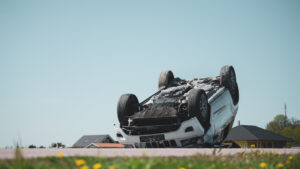In the aftermath of the Cardinal McCarrick revelations, it’s easy to forget that two other US cardinals have been publicly censured as a result of their involvement in the priest sex abuse scandal.
The first was Cardinal Bernard Law of Boston who resigned in disgrace in 2002 after the Boston Globe uncovered evidence that Law had covered up for priests who abused children in the Archdiocese of Boston.
The second cardinal to be censured publicly was Cardinal Roger Mahony of Los Angeles. Mahony, who retired in 2011 after reaching the mandatory retirement age, was publicly censured by his successor, Archbishop Jose Gomez and forbidden to serve publicly in the Archdiocese following the release of personnel files documenting priest sexual-abuse cases during part of Mahony’s tenure.
After a court order requiring the Archdiocese of Los Angeles to release documents some of which expose Mahony’s cover-up of sexual abuse by priests, Gomez publicly censured Mahony who retired after 25 years of being Cardinal Archbishop of the city in 2011.
“Effective immediately, I have informed Cardinal Mahony that he will no longer have any administrative or public duties,” said a public letter issued by Archbishop Gomez.
The documents, some 12,000 pages, show that Mahony purposely concealed from the public his knowledge of priests who had committed sex crimes with youth, transferring the perpetrators after they received counseling only to have them sexually abuse again and again.
The abuses were so severe that Archbishop Jose Gomez commented, “I find these files to be brutal and painful reading. The behavior described in these files is terribly sad and evil.”
Earlier this year, Pope Francis appointed Mahony as his special envoy to the Diocese of Scranton for the diocese’s 150th anniversary. A swarm of protests engulfed the Diocese of Scranton and Mahony subsequently backed out of the engagement.
The Archdiocese of Los Angeles still has not recovered from the corruption and scandal in part caused by Mahony’s actions. In a 2013 article on Mahony’s tenure in Los Angeles, the LA Times wrote,
“In the child sex abuse scandal that has shaken the Catholic Church, Mahony is a singular figure.
He became the leader of America’s largest archdiocese at the very moment the church was being forced to confront clergy molestation. Because he was just 49 when he took office, he was in power for the entire arc of the abuse crisis. Long after peers had retired or died, Mahony was around to face the public’s wrath. Because of the unique way abuse lawsuits played out in California, his files on molesters became public while in most other corners of the church, they remain under lock and key.
The archdiocese’s confidential personnel files, released this year as part of a massive settlement of civil lawsuits, provide the most detailed accounting yet of how clergy abuse was handled in a U.S. diocese. Along with sworn testimony by Mahony and his advisors and interviews with church officials, victims’ families and others, the nearly 23,000 pages maintained by the archdiocese and various religious orders suggest a man who was troubled over abuse but more worried about scandal — and how it might derail the agenda he had for himself and his church.”
When he was named the Archbishop of Los Angeles in 1985, Mahony was the youngest (49) archbishop in the country and he was ambitious, not unlike his East coast colleague Cardinal Law.
Both men’s ambition however clouded their judgment and led them to make fateful errors in dealing with the burgeoning priest sex abuse scandal. Now, more than three decades later, the reputations of both men have been sullied by their failure to protect children. That will be their legacy.

Admitted to practice law in all federal multidistrict litigation courts, the California State Bar and the Florida Bar. His philosophy is to provide aggressive, quality representations and seek fair compensation for individuals and their families who have suffered injury, death, or sexual abuse.









2 Comments
Maddix
Mahony responded to Gomez's letter immediately and continues to perform public duties, such as confirmations, in the archdiocese (sometimes with controversy).
Joe Saunders
Thanks for reading and posting. My recent follow up reply to an email I received from the Archdiocese I think addresses your comment as well.
Comments for this article are closed.